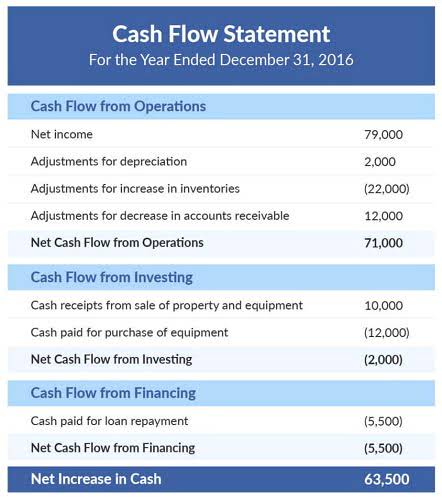
Before undertaking any major project, it’s a good idea to identify your goals and desired outcomes. Without a clear direction to move towards, it can be hard to understand and communicate how to prepare for an audit why your organization is doing all of this work. If your goal is to achieve certification, it is best to keep that goal in mind when you create your audit schedule.

Panama to review all information to make an informed First Quantum decision
Before applying a specific framework, the internal audit team and leadership should evaluate itssuitability as they map to the business. Additionally, participants in the project should review the audit report and audit results to refresh their understanding of the environment, scope, and project parameters. The team may also want to review any standards, frameworks, and regulatory requirements relevant to the project or program.
Analyzing the findings and preparing an audit report

This is why implementing (and proactively using) a tracking system is so helpful. Tracking keeps the work organized and helps the audit get completed more quickly. While external regulatory compliance audits are essential, they often have a specific scope and aim—PCI DSS, for example, zooms in on credit cardholder data. Internal audits have the benefit of a looser scope, allowing an organization to focus on priority areas or areas that may not be examined in a formal compliance audit.
- Our clients routinely engage our Accounting Advisory and Management team as internal auditors prior to engaging external auditors.
- While it’s not always possible to know exactly when an audit will occur, your life sciences company can rest comfortably knowing that audits are inevitable.
- Financial statements are prepared in accordance with relevant accounting standards and are meant to provide information for decision-makers such as investors, creditors, and other stakeholders.
- An audit also provides proof that your documents accurately represent your situation (your auditor’s final report serves as this proof).
Preparing the Audit Program
- Typically, these audits concentrate onspecific issues such as discrepancies in income or expenses.
- Like with all internal audit projects, an organization should seek out some kind of management review of the outcome of the audit and take corrective action wherever possible, and keep leadership abreast of compliance efforts.
- They may not provide additional services, such as bookkeeping, financial information system design or implementation, actuarial services, brokering services, legal services, or valuation services.
- A small public company or a private company may want to have an integrated audit performed when they are preparing for sale.
- If your company is public, you include these reports when filing with the SEC.
During these talks, we gather more information about yourfinancial position and clear up any tax problems found during the firstreview. These checks can be very thorough and difficult, so it’s importantto be ready and organized. Your tax professional can help you throughthe process, explain confusing points, and ensure you bring all theright paperwork. Also, having a tax expert there can help avoid anyconfusion or disagreements that might come up during the audit, makingthe whole process easier and less stressful. While an audit can be a complex and challenging process, it can also be an opportunity to identify areas of improvement and strengthen your organization’s financial practices.
Autonomous Finance Platform
When conducting an audit report and analysis of financials, you may desire a certain level of detail in your financial reporting. To choose which activity best suits your needs, it helps to understand the three types of financial reporting. Organizations conduct an internal audit to ensure accurate financials and proper expenditures. During the audit, the organization looks at its records to ensure everything adds up (literally). A financial audit considers every aspect of your financial process and documentation. During a typical audit, expect your auditor to review several pieces of financial information to render an independent opinion.
Control attributes are the components and characteristics of the control activity that are critical to the effective execution of that control. Asking the following questions and documenting the results are a good starting point — though some controls may have unique or uncommon attributes as well. Also, write down the due date for your answer to make sure you haveenough time to get the information you need together.

This means going to the place of business, looking at the accounts and transactions, and determining what makes the amounts up. I may find something interesting when I look at the major accounts or some smaller ones. For example, ensure donor documentation is obtained and retained for every contribution received. Or, if an unusual transaction occurs, keep documentation related to your decision-making process. Ensuring proper documentation is retained will allow you to more quickly provide supporting documentation for selections requested by the auditor and will avoid any unnecessary time spent searching other records.
Use your accounting software to separately track all revenues and expenses of each award. The reporting from your accounting system based on the separate tracking will make reporting to the federal agency and preparing the schedule of expenditures of federal awards more efficient. Review the list of requirements from the auditors and assign each item to a capable and responsible person, with a due date. An ISO audit is an audit of your organization’s compliance with one of the standards set forth by the International Organization for Standardization (ISO). If there are certain items requested by the auditor that you’re unsure about, you should be proactive about it.
- Planning, preparedness, and cooperation are critical to achieving audit objectives and gaining deeper insights.
- An audit designed to evaluate an organization’s quality system or QMS and quality policies may not be the best place to audit for other regulatory requirements.
- Or, if an unusual transaction occurs, keep documentation related to your decision-making process.
- Furthermore, many privately-owned firms do not issue financial data publicly.
On the one hand, the company being audited is paying the auditor for their needed service, and the auditor needs to support their own business. On the other hand, the company under audit may exert pressure by not hiring a particular auditor or firm or by withholding auditing fees in the case of https://www.bookstime.com/ an unfavorable outcome. A scenario such as this can become an ethical dilemma for an auditor because as gatekeepers, they have a substantial responsibility. Experts suggest better incentive systems and policy reform for auditors overall, especially those faced with economic ethical dilemmas.
Why internal audits are crucial to your business
The IRS utilizes ATGs as a means of preparing for audits for businesses in all kinds of unique industries. The guides provide intel into various industries or issues, accounting methods typically used, how income is received and areas where taxpayers may not be in compliance. For example, ATGs exist for construction, aerospace, art galleries, child care providers and veterinary medicine.
